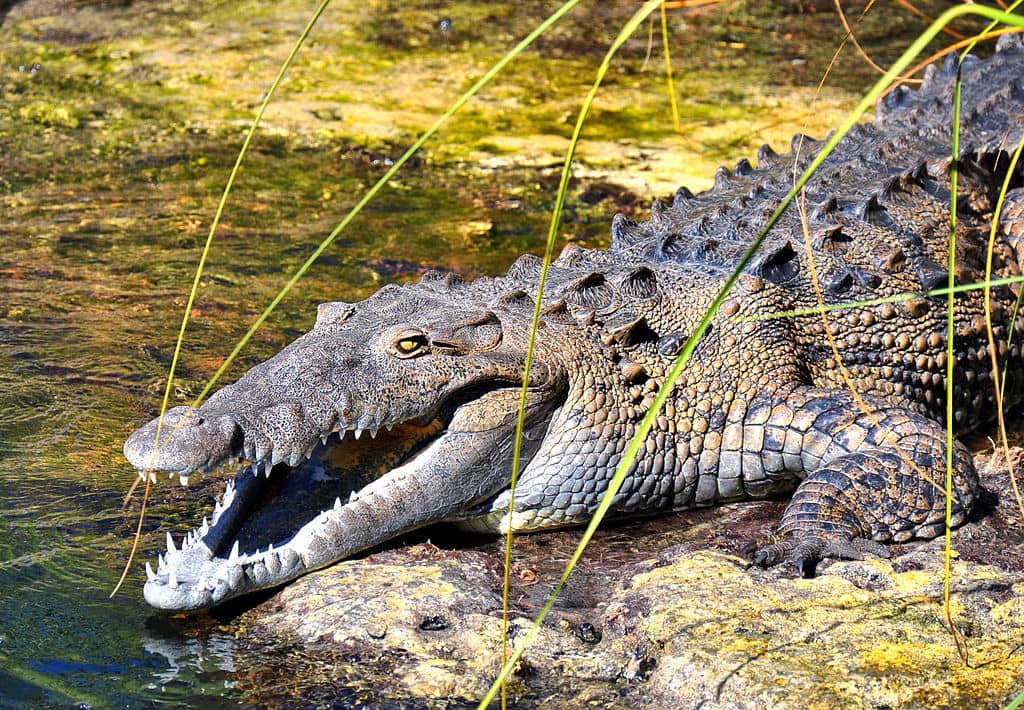Florida Officials Confirm First Ever Wild Crocodile Attack in the US
OutdoorHub Reporters 08.27.14

Trappers working with the Florida Fish and Wildlife Conservation Commission (FWC) are now searching the waters of a canal in Coral Cables after a crocodile attack on Sunday. According to WSVN, Alejandro Jimenez, 26, and Lisset Rendon, 23, were attending a house party in the upscale neighborhood when the two decided to take a late night dip in the nearby canal. Rendon was the first to encounter the 9-foot crocodile, which promptly bit her in the shoulder. Rendon was able to escape but that only drew the reptile’s attention to Jimenez, who was bitten in the hands and torso before he was able to reach the safety of a nearby dock.
“They are very lucky,” FWC spokesperson Jorge Pino told CBS Miami. “They are very lucky that they managed to get away from the crocodile with no problem.”
Rendon’s injuries were described as light and she was not hospitalized. Jimenez however, was transported to South Miami Hospital. His condition has not yet been released, but his sister says that he is recovering from his injuries. Wildlife officials say they are currently searching for any crocodiles in the area matching the description given by witnesses. The canal is known to hold at least three of the reptiles and at least some residents were aware of the dangers in swimming there. Trappers hired by the FWC say they hooked an 11-foot crocodile on Monday, but it got away.
“I will never be able to tell if this is the one that was involved the other night,” said Todd Hardwick, one of the trappers. “What I can tell you is that we’re going to move the animal out of the neighborhood.”
Florida is well known for its alligator population, but many may not know that the state is home to a small number of crocodiles as well. American crocodiles are generally reclusive creatures that live throughout the Caribbean and in South Florida, where they prefer brackish waters. Although they may be hard to tell apart, crocodiles can be usually be differentiated from alligators by their grayish green coloration and narrow snout. At only about 2,000 individuals, they number far fewer that alligators and are considered relatively rare. The largest concentration of the species in Florida is in the Everglades and Biscayne national parks, as well as the Ding Darling National Wildlife Refuge. As a whole, the crocodile population has been in a slow recovery over the past several decades and is still considered an imperiled species by the FWC.
“There has never been a documented bite on a person by an American crocodile in Florida,” the FWC stated on its website. “Unleashed pets are at some risk from crocodiles, but pets are always at risk near the water because of the more likely presence of alligators.”
In fact, wildlife officials say there has never been a confirmed wild crocodile attack on a human in the US, and this is likely a first. FWC employees and trappers say they will continue to search for crocodiles in the Coral Cables canal and remove them if found.

